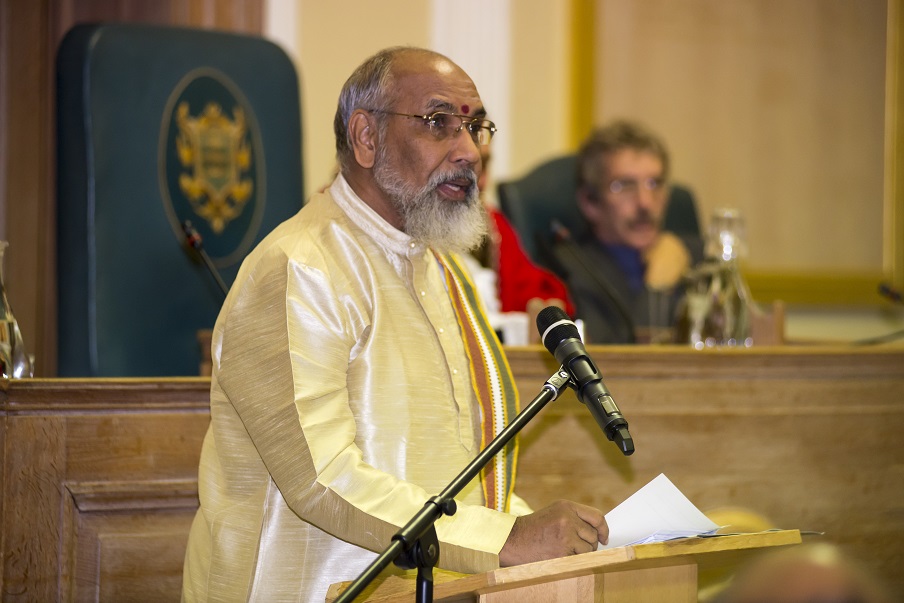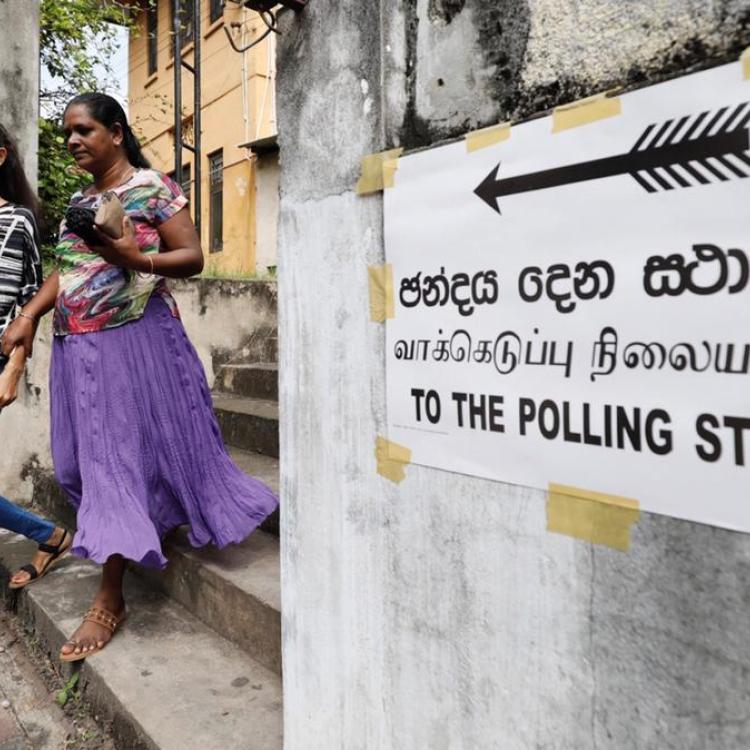
In a recent interview, former Chief Minister of the Northern Province and ex-Member of Parliament for Jaffna District, Justice C V Wigneswaran, emphasised the critical need for a “proper settlement” to the ethnic question, as he rejected a decline in Tamil nationalism.
“The election results did not mean our people rejected Tamil Nationalism,” he asserted. Instead, he pointed to frustration among Tamil voters, who have long awaited a political resolution to their grievances, as a key driver behind the National People’s Power (NPP) success in the North. He stated that Tamils’ frustrations were compounded by their representatives in Parliament “enjoying Parliamentary perks and privileges” while neglecting to address the nation’s issues.
However, Wigneswaran warned that the NPP’s recent gains might prove temporary if they fail to address Tamil concerns. “The support for the NPP among the Tamils is already dwindling due to the Sinhala hegemonic mindset of the powers that be,” he said. He argued that any lasting trust in the NPP would be contingent on the resolution of the ethnic problem. “Until a proper settlement is found to the ethnic problem, the Tamils will not trust the NPP. The voting this time could be an aberration,” he remarked.
Wigneswaran reiterated his long-standing opposition to the Thirteenth Amendment as a viable basis for resolving Tamil grievances. He described the amendment as a component of a “unitary constitution” that centralizes power within a Sinhala-majority state. “At best, the Thirteenth Amendment has made decentralization a possibility. But it has not ensured devolution of power to the Tamil-speaking people of the North and East,” he said, highlighting the structural inequities faced by Tamil-majority regions.
Drawing from his experience as Chief Minister of the Northern Province, Wigneswaran detailed how the central government exerted overwhelming control over provincial finances and decision-making. “All income from the Northern Province, including all taxes, were paid to the Central Government,” he explained. “But when the Centre had to decide what amount was to be apportioned to the Northern Province, they acted arbitrarily to the detriment of the interests of the People of the Northern Province.”
Wigneswaran expressed scepticism over the effectiveness of provincial councils under the current system, noting that “Provincial Councils coming under the control of the majority community under a Unitary Constitution could never solve the problems of the North and East.” Instead, he emphasised the necessity of structural changes that would ensure meaningful autonomy for the Tamil homeland.
Reflecting on the broader electoral landscape, Wigneswaran suggested that the fragmentation of Tamil nationalist votes had disadvantaged Tamil political parties. He proposed that a ‘Tamil National Common Front’, akin to the coalition formed in Trincomalee during the last election, could offer a path forward. However, he cautioned that Tamil voters had grown wary of selfish and unreliable politicians. “A new educated younger set are required for the next election,” he added.
When asked about the new Sri Lankan government, Wigneswaran was measured in his response. “They are new to the job. Give them six months at least before assessing them,” he said.
Wigneswaran also weighed in on the issue of security allocated to former President Mahinda Rajapaksa, offering a sharp critique of its necessity.
Responding to recent debates about the size of Rajapaksa’s security detail, he questioned its justification. “Mahinda certainly does not need such large security units,” he remarked, adding, “Whoever wants to kill the ailing Mahinda? He is a spent force.” Wigneswaran noted that much of the violence attributed to the LTTE during Rajapaksa's tenure was politically motivated and orchestrated by politicians, with the blame conveniently shifted to the Tamil militants. He criticized the overestimation of Rajapaksa’s current significance, suggesting that a smaller, well-trained security detail would suffice. “From whom does Mahinda need protection? From his Medamulana kith and kin?” he quipped.


